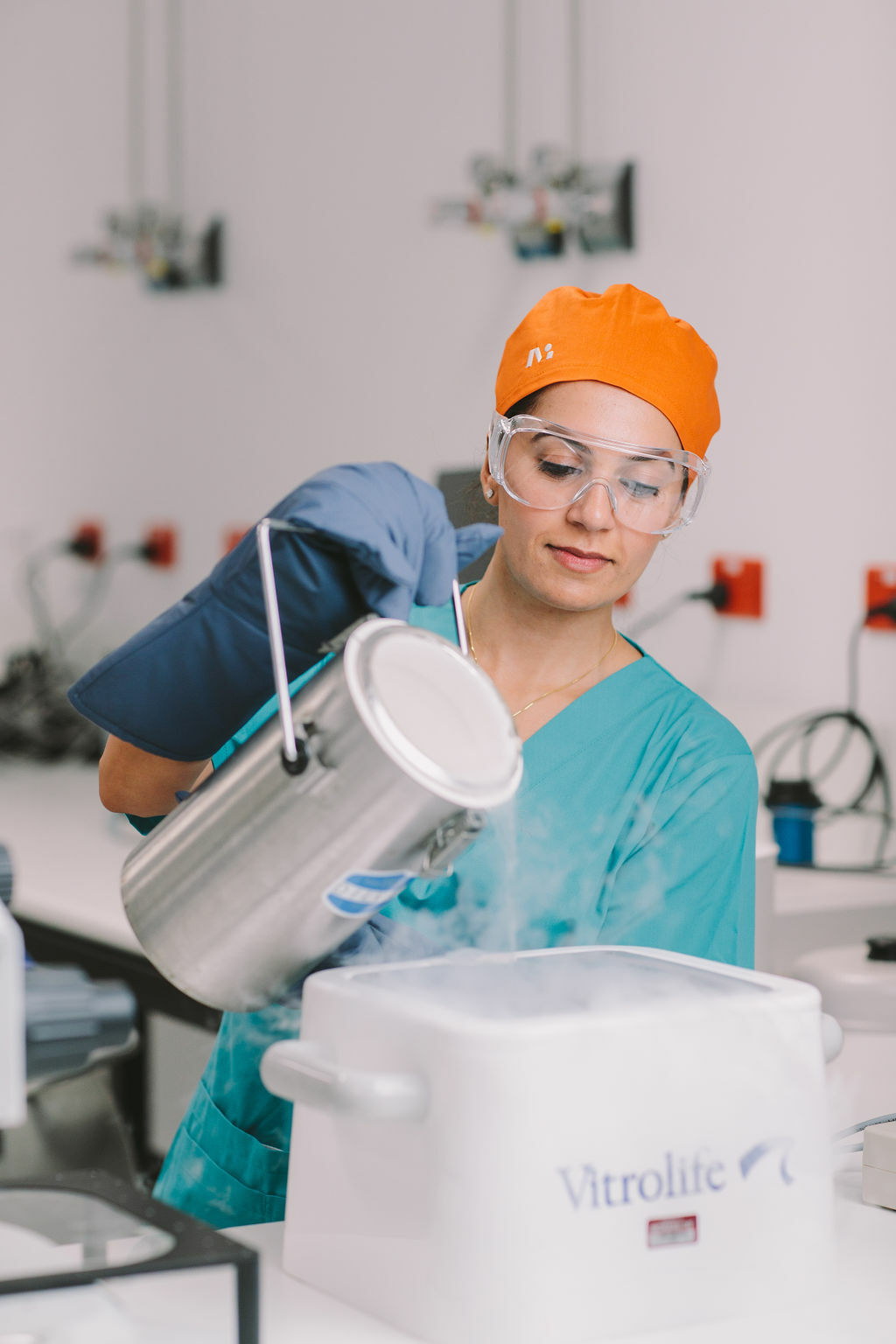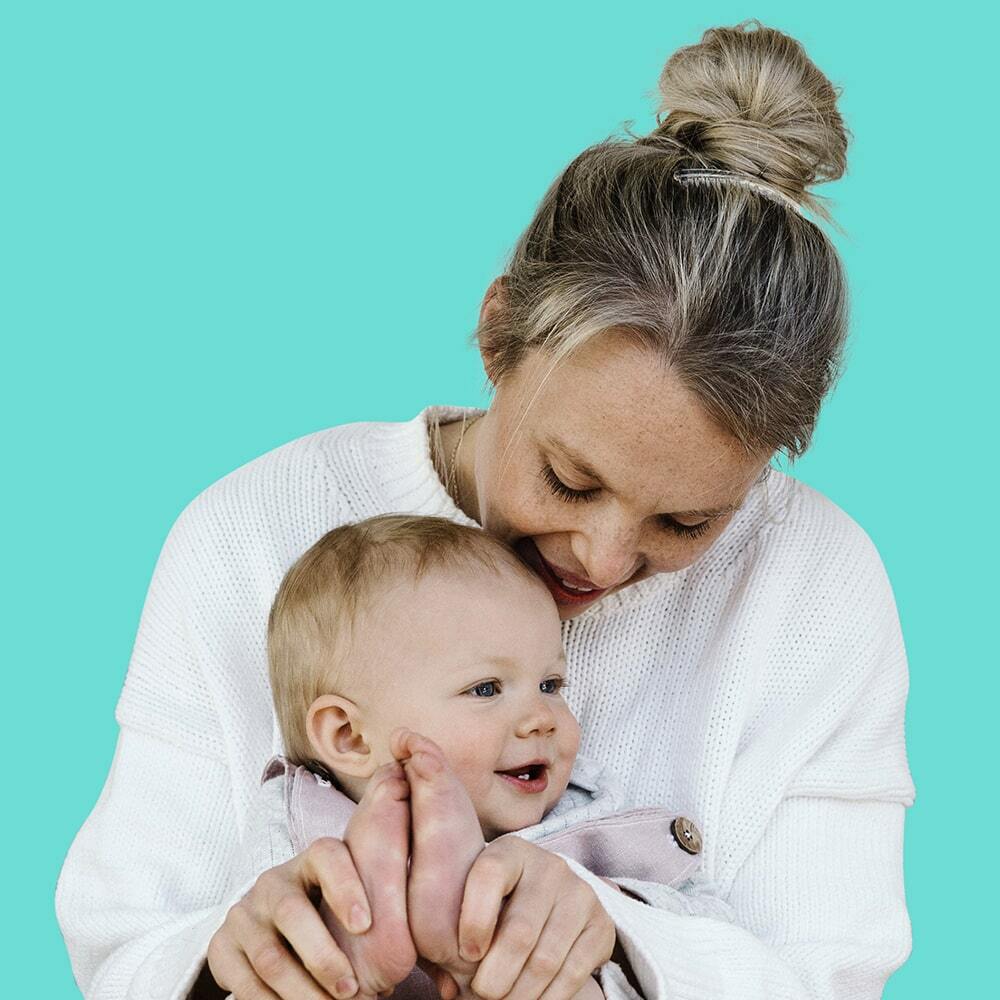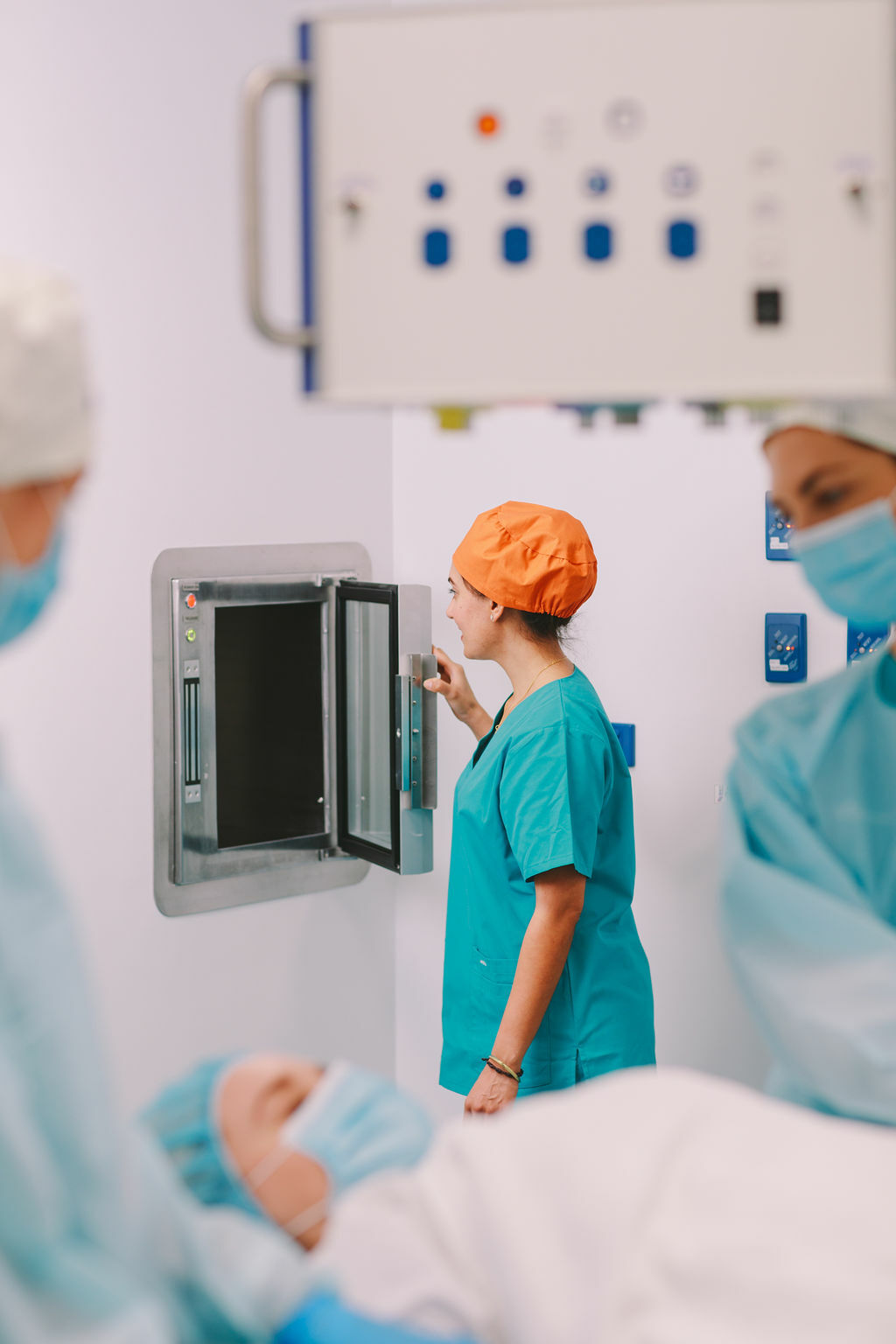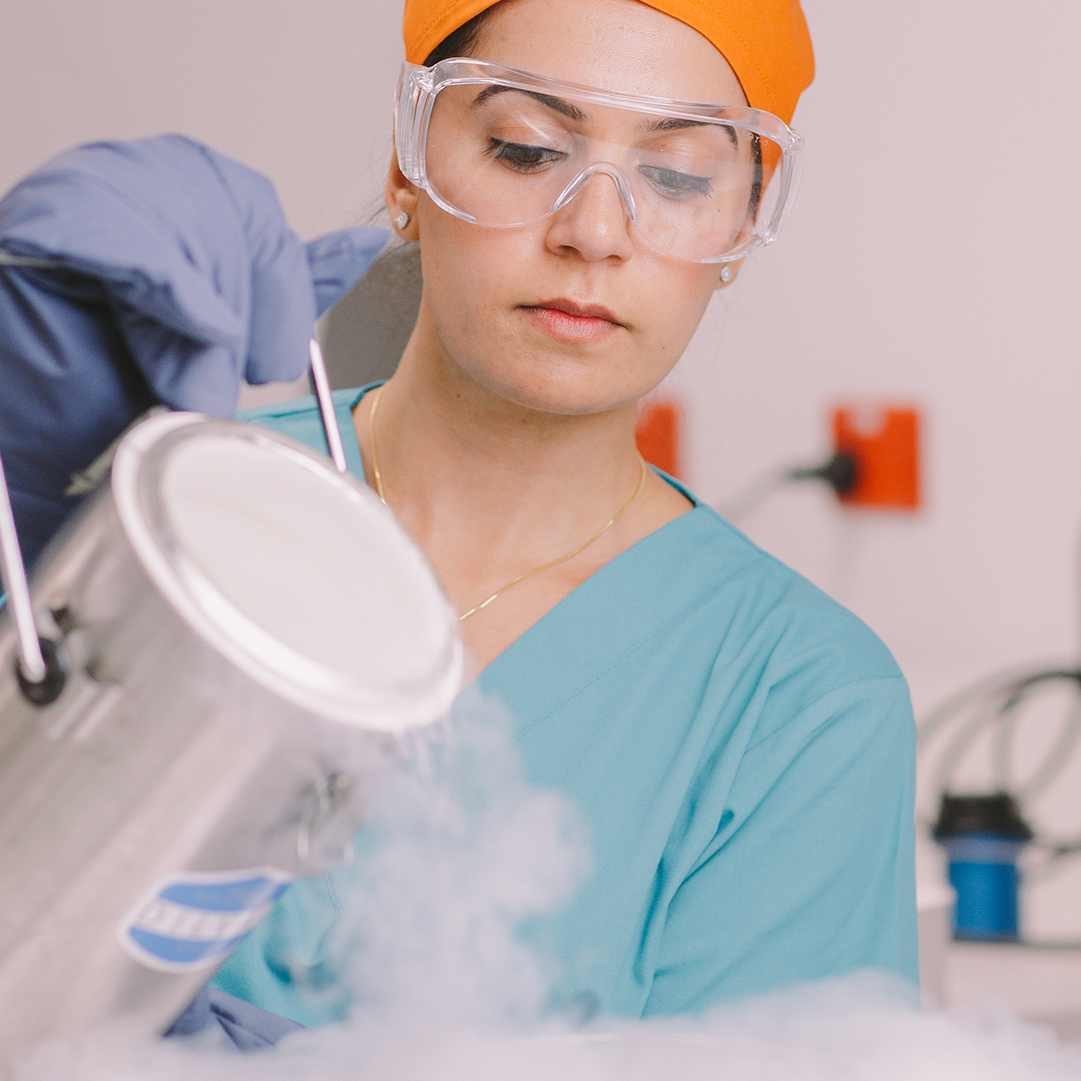Egg Freezing
If you would like to have a family one day, or just want to keep your options open, egg freezing can give you peace of mind about your future fertility.
Egg freezing is a method of collecting, preserving and storing your unfertilised eggs. Your eggs are frozen through a process called vitrification, which means they are frozen in time. They are stored safely in our lab until you determine if you need to use them.
Egg quality and quantity declines with age. You can’t put a pause on your biological clock – but you can freeze your eggs, because frozen eggs don’t age. Age is the most important determinant of IVF success. If you choose to use your frozen eggs to conceive in the future, the chances of successful IVF treatment will be based on the age at which you froze your eggs. For example: if you freeze your eggs at 30, then decide to use them when you’re 35 – you have the same chance as a 30-year-old to achieve an IVF pregnancy. Ultimately, the younger you are when you freeze your eggs, the better.
When you freeze your eggs with Monash IVF you can rest assured you are in safe hands. Monash IVF pioneered egg freezing and in 1999, Monash IVF achieved the world’s first birth from a vitrified (frozen) egg. Since then, there’s been significant advances in the egg freezing techniques – meaning your chances of taking a baby home using your frozen eggs are better than ever.

When should I freeze my eggs?

Why freeze my eggs?
There are many reasons to freeze your eggs.
Everyone’s reasons for choosing to freeze their eggs are different. Common reasons for egg freezing include:
- I want to have a baby one day, but I’m not ready to be a parent yet.
- I’ve recently broken up with a long-term partner that I was planning to start a family with.
- I’ve got health concerns that might be a threat to my fertility, like severe endometriosis or a cancer diagnosis.
- I haven’t found the right person to settle down with yet.
- I’m not sure if I actually want to have kids – but I want to keep my options open.
Whatever your reason for freezing your eggs, we’re here to help you explore if it’s right for you.
More information

Egg Freezing Cost
There are four main costs associated with egg freezing at Monash IVF:
1. Cycle fee
Monash IVF’s fee per elective egg freezing cycle is $5,000 AUD. At Monash IVF, we are also able to offer flexible payment plans to help you manage the cost of egg freezing through Zip Money. Zip Money allows patients to access treatment straight away with no payment required upfront. Patients apply directly to Zip Money for a 6, 12, and 24 interest-free payment plan. To find out more about Zip Money at Monash IVF, click here. Terms and conditions apply. Not valid on ultrasound or storage fees.
2. Medication costs
Medications are required to stimulate your ovaries as part of the egg freezing process. These are prescribed by your fertility specialist. Medication costs depend on your treatment plan and can vary from person to person. Speak with your fertility specialist for an estimate of medication costs.
3. Hospital and anaesthetic fee
The cost of the day hospital bed and the anaesthetic required for the egg collection procedure. This depends on where you have your egg collection. If you have private health insurance, your insurance may cover some of these fees. Speak directly with your private health insurance provider for information about your hospital cover.
4. Ongoing storage fees
Once your eggs are frozen, they need to be stored with your fertility provider until you decide to use, donate, or discard them. At Monash IVF, the first 6 months of storage is free. After that, it’s a $290 fee every 6 months.

Egg Freezing Costs - Medical Reasons
In Australia, Medicare provides a rebate for egg freezing if there is a medical need for the treatment. For many people that come to us for egg freezing, it is the first time they have had their fertility investigated. Often during the initial testing, our doctors discover underlying medical conditions which may impact fertility, meaning that freezing eggs is for a medical reason, not an elective one.
When this happens, you would be eligible for a Medicare rebate that will significantly reduce your out-of-pocket costs on the cycle fee, the medication fee and the hospital and anaesthetic fee.
While there is no Medicare rebate for ongoing storage fees, Monash IVF offers a 50% discount for oncology patients.
If you’re choosing to freeze your eggs for non-medical reasons, unfortunately you won’t be eligible to receive Medicare assistance for your egg freezing treatment cycle.
At Monash IVF, your trust and safety is our priority - every step of the egg freezing process is guided by the highest standards of care. If you would like to learn more about our stringent safety processes, please visit our enhanced laboratory protocols page.
Egg freezing process - common misconceptions
The eggs we stimulate with medication would have grown or died during your natural cycle that month. The stimulation mimics your body’s natural processes.
Insights about the egg freezing process
Common egg freezing questions

Chances of conceiving with frozen eggs

Egg freezing investigations
If you see a fertility specialist to discuss egg freezing, they’ll undertake some initial fertility testing to determine whether egg freezing is necessary and the best option for you. The results of these tests will determine whether your egg freeze is classified as a medical egg freeze or an elective egg freeze with Medicare. If it’s a medical egg freeze Medicare will cover some of your costs.
Tests prior to egg freezing may include:
Anti-Mullerian Hormone Test (AMH)
This is a blood test that measures the levels of Anti-Mullerian Hormone (AMH) in your blood. AMH is a hormone produced by cells in the follicles in your ovaries. Your AMH level is an indicator of your ovarian reserve.
Pelvic Ultrasound
This is an internal ultrasound during the follicular stage of your menstrual cycle – between day 5 to day 9 of your cycle. This ultrasound will show how many follicles you have, and can help assess the anatomy of your uterus, fallopian tubes and ovaries. Your pelvic ultrasound should be completed by a specialist gynaecological imaging centre, like Monash Ultrasound for Women or Sydney Ultrasound for Women.
Other Hormone Tests
These are blood tests to measure the levels of your reproductive hormones. Some of the hormones that might be tested include follicular stimulating hormone, luteinizing hormone, prolactin hormone or thyroid stimulating hormone.
Screening For Sexually Transmitted Infections (STIs)
STIs can have a significant impact on your fertility, particularly if they are left untreated. STI screening is a routine part of fertility investigations.

How to get started
Chat to a nurse
Book a complimentary phone chat with a fertility nurse to discuss egg freezing. Our team of fertility nurses can answer any questions you have, walk you through the process, and can discuss costs with you. Book a complimentary nurse chat here.
See a fertility specialist
You need a GP referral to see a Monash IVF fertility specialist. When you see a fertility specialist, they’ll undertake some initial testing to determine whether egg freezing is the best option for you. If you decide to proceed with egg freezing, they will tailor a treatment plan to your individual circumstances. Book an appointment with a fertility specialist here.
Freeze your eggs
After you've completed some paperwork and met with the team, you're ready to get started!
Your fertility specialist will prescribe some stimulation medication, which you’ll take in the lead-up to your procedure. The egg retrieval itself is a short day procedure. It only takes 10-15 minutes and you'll be completely asleep.
Once your eggs are collected, the scientists in the lab assess each one for quality. They only freeze mature eggs. Mature eggs give you the very best chance of a successful pregnancy down the track.
More information

Start your fertility journey
Wherever you are on your journey, one of our supportive nurse enquiry team members can help you understand your options and take the next step. These conversations are free and informative.


